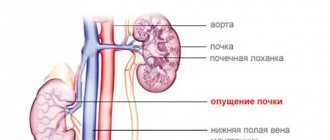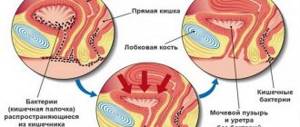A nephrologist is a highly specialized doctor who deals exclusively with kidney diseases. It is necessary to distinguish him from a urologist, who is responsible for pathologies of the urinary and reproductive systems.
Every kidney function in the human body is irreplaceable and vital. As soon as disturbances occur in the functioning of this organ, it immediately affects the functioning of other body systems. Proper kidney function determines the constancy of the body’s internal environment (homeostasis). If you neglect the problems associated with this organ, you can lead to an extremely serious condition, even death.
You should immediately contact a nephrologist in the following situations:
- Pain in the kidneys, radiating to the lower back.
- Frequent trips to the toilet.
- The appearance of discomfort at the time of urination.
- Swelling face and limbs.
- Reduction in urination or complete cessation.
- Changes in the color and smell of urine, the appearance of impurities in it.
When is it necessary to consult a nephrologist?
Consultation with a specialist in this profile is necessary if you periodically or regularly experience the following symptoms and complaints:
- Sharp pain when urinating;
- Discharge of blood in the urine, change in urine color;
- Dull or sharp pain in the lumbar region;
- Increasing weakness along with lower back pain and high body temperature;
- Changes in the daily volume of urine excreted – polyuria or oliguria;
- No urination for 12 hours;
- Attacks of renal colic;
- Cloudy urine, the appearance of an unpleasant pungent odor from urine;
- Swelling of the face and limbs;
- Vomiting and increasing symptoms of intoxication after prolonged use of drugs in large doses;
- High blood pressure.
The doctor will definitely conduct a general examination of the patient, collect anamnesis, and prescribe the necessary tests and additional studies. Based on the examination findings, the patient will be prescribed appropriate treatment.
In what cases is a doctor needed?
Parents should take their child to an appointment with a pediatric nephrologist to make a diagnosis and prescribe a course of treatment if the following characteristic symptoms occur in a young patient:
- painful sensations manifested in the lumbar region;
- discoloration, cloudiness of urine;
- frequent urge to urinate, which may be false;
- swelling;
- feverish condition;
- the appearance of clinical signs of an asthenovegetative nature - increased fatigue, weakness, lack of appetite, sleep problems;
- pain, discomfort when urinating;
- urinary incontinence in children over 5 years of age;
- redness of the area of the external reproductive organs;
- deviations of indicators from normal, identified during laboratory and instrumental studies.
It is important to understand that many renal pathologies are asymptomatic for a long time, so you need to regularly undergo medical examinations with a pediatrician and take urine tests. It is often recommended to visit a pediatric nephrologist after suffering from a sore throat, with periodic attacks of increased body temperature.
Where to find a good nephrologist?
If you need a nephrologist in Moscow, then use the search engine on our website.
Opposite the profile of each nephrologist you can see the numbers that indicate the doctor’s rating in Moscow. The rating is based on the frequency of search queries for a given specialist among patients, as well as on the level of qualifications, work experience and experience of the doctor.
If you can’t decide which nephrologist is best to make an appointment with, pay attention to the reviews section. There you can read detailed impressions of other people who have already encountered a nephrologist and shared their experiences on our website.
What tests and studies are prescribed?
A urine test provides a direct assessment of possible kidney problems, which may be indicated by blood and protein in the urine, pus, or abnormal cells. A 24-hour urine collection can be used to quantify daily protein loss, urine output, and creatinine clearance.
Specialized tests can detect diseases that affect the kidneys, such as infections (hepatitis B and C), systemic lupus erythematosus, vasculitis, amyloidosis, multiple myeloma and diabetes.
Structural renal abnormalities are identified using ultrasound, CT, scintigraphy, angiography, or magnetic resonance imaging.
For some diseases, retrograde pyelography, excretory urography, angio- and venography, cystoscopy and biopsy will be required
Diagnosis of inflammation of the urinary system
Hemorrhoids kill the patient in 79% of cases.
After an initial consultation with a doctor, confirmation of inflammation of the urinary system or the presence of developmental anomalies or metabolic problems is needed. For this purpose, a number of tests are prescribed, such as a general blood and urine test, biochemical blood tests and urine cultures for sterility to identify the nature of the inflammation.
However, inflammation is not always easily detected only from test data; you need to find its exact location and the extent of the disorders that were caused by it. To do this, the doctor uses a whole series of studies for children. First of all, this is an ultrasound of the kidneys and bladder, both full and after urination, as well as, if necessary, radiography with contrast agents (intravenous urography, cystoscopy and voiding cystography). Based on all the data obtained, a diagnosis is established and the localization of inflammation or pathological process is confirmed.
How are kidney diseases treated?
Treatment in nephrology may include medications, blood products, surgery, and renal replacement therapy (dialysis or kidney transplant). Chronic illnesses are treated with avoidance of kidney toxicants, antihypertensive medications, dietary changes, and weight loss. Autoimmune and inflammatory kidney diseases are treated with immunosuppression. When the kidneys stop functioning, end-stage renal disease occurs, requiring ongoing dialysis or a kidney transplant.
Not everyone still knows what a nephrologist treats, attributing to him the ability to understand urological problems. This doctor's specialization is more narrow - he is only interested in studying the functioning of the kidneys. Its competence includes the prevention and elimination of violations.
About glomerulonephritis
This disease most often has an autoimmune etiology. Its treatment requires serious therapy. It is usually carried out by a specialized nephrology clinic. In this case, it is best to undergo treatment in a hospital setting. The fact is that there is everything necessary to monitor the patient’s recovery.
The basis of treatment for glomerulonephritis is glucocorticosteroid drugs and immunosuppressants. These medications have quite a lot of side effects. So therapy for glomerulonephritis should be under constant supervision of specialists.
Nephrologist – what does he treat?
The doctor's area of interest includes diseases of various natures that appear as a result of infections, poisoning and inflammation. A nephrologist eliminates the following problems:
- – failure of the interaction of proteins and carbohydrates;
- pathological changes under the influence of long-term medication use;
- stones in the kidneys;
- – bacterial damage;
- infectious problems of the urinary tract;
What does a nephrologist treat in adults?
Problems are classified not only by the pathogen; the person’s age also becomes an important factor. An adult nephrologist is faced with:
- formation of stones;
- nephrogenic diabetes of various origins;
- extensive vascular damage;
- pyelitis;
- gouty kidney;
- polycystic disease;
- nephrogenic anemia;
- kidney tuberculosis.
Some of these problems require another doctor's view because they cannot be cured therapeutically. If the disease is not what the nephrologist treats, then surgery will be recommended at the next stage. For this reason, you should not delay in identifying any problems that indicate kidney dysfunction; early detection may prevent the need for surgery.
Nephrologist – what does he treat in children?
Disturbances in the functioning of this organ in a child are especially dangerous due to the incomplete formation of the body. For this reason, careful attention is required to any manifestations indicating instability of the urinary system. A pediatric nephrologist must conduct an examination if blood is detected in the urine, because this may indicate an attack of renal failure. This is what a nephrologist treats in young patients:
- tubulopathy;
- pyelonephritis;
- nephropathy;
- vasculitis;
- dysplasia;
- urinary tract abnormalities;
- nephritis.
Nephrology: pediatric and adult
Currently, there are 2 types of nephrology departments: adults and children. Each of them has its own characteristics. For example, in pediatric nephrology, it is necessary to have specialized equipment so that quality care can be provided to even the youngest patients. Nephrology occupies an important place in pediatrics. It is for this reason that there are entire centers dedicated to the treatment of renal pathology in children.
The Adult Nephrology Department includes equipment for diagnosing various kidney diseases. The main techniques used here are:
- ultrasound examination of the kidneys;
- excretory urography;
- general urine analysis;
- urine analysis according to Nichiporenko;
- Rehberg's test.
The nephrologist himself establishes a list of necessary studies and, based on their results, as well as clinical data, issues a diagnosis.
When to contact a nephrologist?
The following points may indicate that the organ is not coping with its functions:
- lack of urine output;
- lumbar pain – symmetrical or on one side;
- excessive urine production;
- renal colic;
- protein or blood in the urine;
- inflammation affecting the organ.
In some cases, a urologist-nephrologist should perform an examination when there are no obvious indications of this, but there are concomitant diseases. Hypertension often becomes like this. It can form against the background of hidden processes occurring in the kidneys. For this reason, if a persistent increase in pressure is detected, a doctor’s examination is required to exclude a possible abnormality in the functioning of the organ.
The child should be shown to a specialist in the following cases:
- presence of blood or mucus in the urine;
- crying when urinating;
- swelling, even if it is only swelling of the eyes;
- the color, clarity, or smell of urine has changed;
- urine output has decreased to a third of the usual volume;
- urination at night in children over 4 years of age;
- constant redness of the external genitalia.
Nephrologist and urologist: what is the difference
There are not only similarities in the work of specialists, but also differences. A nephrologist is a physician with a narrow specialization. The doctor treats kidney pathologies without surgery. In small settlements, medical institutions often do not have the position of a nephrologist; his duties are performed by a urologist - a doctor of broad specialization.
Find out what multicystic kidney disease is in the fetus and how to treat developmental pathology.
Indications for the use of Norbactin for urological diseases are described on this page.
Follow the link https://vseopochkah.com/mochevoj/mocheispuskanie/chastoe-nochyu.html and read about the reasons for the frequent urge to urinate in women at night and about the features of treatment for the disease.
On a note:
- A urologist treats genitourinary pathologies and deals with “male” diseases (prostate pathologies, tumor process, defects and lesions of the penis, erectile dysfunction). The specialist’s competence also includes performing operations on urological patients;
- nephrologist is a highly specialized doctor who deals with renal pathologies. The doctor selects medications for conservative therapy. After a kidney transplant, the doctor monitors the patient;
- Unlike a nephrologist, a urologist combines medications with surgery.
Appointment with a nephrologist
Diagnostics is divided into:
- conversation;
- inspection;
- tests;
- instrumental examination.
The nephrologist’s appointment ends with the appointment of treatment, which can fall into one of two categories:
- nephroprotective – restoring kidney function without focusing on the type of disorder;
- specific - eliminating a specific problem.
How is an examination by a nephrologist performed?
First, the doctor conducts a survey, then instrumental examinations and tests may be prescribed. Here's what the nephrologist checks during the conversation:
- Heredity is the presence of diseases of this system in close relatives.
- Intoxication – place and nature of work.
- Lifestyle.
- Birth weight and term – kidney cells are created in the final months of gestation.
What tests are done by a nephrologist?
After an external examination and communication with the patient, the doctor will offer to donate blood to study a number of indicators. Nephrologist tests evaluate:
- phosphates;
- C-reactive protein;
- creatinine;
- urea;
- erythrocyte sedimentation rate;
- calcium;
- electrolytic composition of urine and blood.
Nephrologist consultation
After receiving the test results, a diagnosis is made and a treatment regimen is drawn up. If the information received is not enough, then the consultation with a nephrologist may continue with the appointment of additional examinations.
- Ultrasound.
Shows shadows of kidney stones. - CT.
Required to identify organic lesions. - Biopsy.
Taken for histological examination. - Angiography (X-ray).
Detects lesions of the renal arteries and blood vessels. - Scintigraphy (injection of a small volume of radioactive substances).
Effective for detecting early stages of tumors. - Selective arteriography.
Needed to assess the condition of blood vessels.
Before conducting diagnostic examinations, the following rules must be observed.
- Stop smoking and drinking alcohol 12 hours before your visit.
- For the same time you need to abstain from eating.
- During the day you need to reduce your fluid intake to a minimum.
- It is recommended to refrain from taking medications unless they are essential. If it is impossible to stop the course, you need to inform the doctor about this so that he takes into account the effect of the drugs on the result of the study.
In the presence of such diseases, it is important to follow the recommendations of the nephrologist in order to prevent their progress or achieve a complete cure. This cannot be taken lightly because organ transplantation is complex and replacement through dialysis imposes many restrictions. It is better not to need information about what a nephrologist is treating, but this is not easy to achieve. It is necessary to adhere to a lifestyle that helps reduce the concentration of uric acid, its dissolution and elimination.
- Refusal of fried foods, smoked foods, sweets, salted fish, spicy foods, bone broths and meat soups. Instead, it is suggested to eat sprouted wheat grains, fresh fruits and vegetables, and drink juices.
- Drinking herbal infusions, watermelons, at least 1.5-2 liters of clean water per day.
- Moderate physical activity, walks in the fresh air.
- If there are problems with fluid outflow or edema, it is recommended to reduce salt intake, which contributes to water retention. You cannot completely abandon it; a severe imbalance in the electrolyte balance will lead to even greater problems.
- Reducing alcohol consumption or quitting it completely.
- Avoiding hypothermia, especially in the lumbar region.
A nephrologist is a specialist who diagnoses, treats and prevents kidney disease. It makes sense to assume the relevance of kidney disease when symptoms such as lower back pain, cessation or slight reduction in urination, the appearance of blood or protein in the urine appear (in some cases, these manifestations are noted visually, in some - when taking tests, which is additionally confirmed directly by a specialist , studying their results). Meanwhile, in some cases and at some stages of kidney disease, symptoms may be absent, which is why their diagnosis is somewhat complicated.
If we dwell on what a nephrologist treats, then here, as the reader might have already guessed, we are talking about kidney diseases; they, in turn, can occur traditionally in an acute or chronic form.
Therapeutic techniques
How to treat nephrological diseases in children is determined individually, based on the diagnosis, age category, and health status of the patient. In case of inflammatory processes, a course of antibiotic therapy is carried out.
In some cases, surgery is required. To treat children, specialists use the most gentle, minimally invasive methods.
The pediatric nephrologist also develops a dietary menu for the child, gives recommendations to parents, and draws up a program of preventive measures to prevent the development of complications and further progression of the pathological process.
What diseases does a nephrologist treat?
There are a number of diseases that are treated by a nephrologist. In particular, the following options can be distinguished:
- urolithiasis disease;
- glomerulonephritis (a pathology in which immune damage to the renal glomeruli occurs);
- hypertension in combination with renal pathology;
- nephritis;
- pyelonephritis (an infectious-inflammatory process characterized by damage to the renal parenchyma and pyelocaliceal system);
- drug-induced kidney damage (damage that develops while taking certain medications);
- Kidney amyloidosis (a pathology in which a metabolic disorder occurs, provoking the formation of a substance such as amyloid, which, in turn, leads to organ damage).
There are somewhat related diseases, due to which patients mistakenly go to see a nephrologist. Although such diseases are related to the kidneys, they imply the need for surgical treatment, among them the following can be distinguished:
- kidney tuberculosis;
- abnormal position or structure of the kidneys;
- the presence of large kidney stones;
- kidney tumor.
The listed pathologies require a visit to another specialist; in this case, you need to consult a urologist, who will conduct the appropriate diagnosis and determine further steps regarding treatment.
How are kidney diseases different in children?
Children are not just little adults. Their internal ones continue to develop long after birth in order to begin to work at full capacity as in adults. Their bodies are constantly evolving, their organs are growing and they have unique medical needs.
Unlike kidneys in adults, the filtering capacity of a newborn's kidneys is much less due to their small size. Only at the age of one and a half years, the baby’s kidneys enlarge, and their structure and functionality become identical to adult organs. Due to the constant growth and development of the child’s body, the kidneys may not always have time to adapt to new loads, especially during critical periods of maturation corresponding to the following age periods:
- from birth to three years
- from four to five years to seven to eight years
- from 10-11 to 15-16 years
From birth to 4 years of age, birth defects and hereditary diseases are the leading causes of kidney disease and kidney failure. Between the ages of 5 and 14 years, kidney failure is most often caused by hereditary diseases, nephrotic syndrome and systemic diseases.
Kidney disease in children can be caused by:
- congenital anomalies
- hereditary diseases
- infectious diseases (consequences of streptococcal tonsillitis, skin infections)
- nephrotic syndrome (kidney damage)
- systemic diseases (systemic lupus erythematosus, diabetes)
- injuries
- blocking the outflow of urine or its reverse flow (reflux)
Diseases of the kidneys and urinary tract, their course and outcome also differ in children and adults. For example, the cause of the development of chronic inflammatory kidney diseases (chronic pyelonephritis) in children in 2/3 of cases are congenital malformations, such as hydronephrosis (expansion of the internal cavities of the kidneys), backflow of urine from the bladder into the ureters (vesicoureteral reflux) due to for dysfunction of the valves and muscle tone of the ureters (megaureter).
With glomerulonephritis (damage to the small vessels of the kidneys), children, unlike adults, rarely experience an increase in blood pressure. If arterial hypertension is observed, it is more often associated with congenital disorders of the normal structure of the kidneys (dysplasia) or congenital narrowing of the lumen of the artery that supplies the kidney with blood.
Children have difficulty formulating their complaints and do not know what is normal in their condition. Because of this, if parents do not closely monitor the child's health, many kidney diseases can go undetected, which can lead to chronicity of the disease.
Kidney diseases significantly affect the psychological and mental status of the child:
- he may develop a negative image of himself
- there is a feeling of shame and relationship problems
- behavioral problems and learning difficulties appear
- development of motor and language skills slows down
When to go to a nephrologist?
As already noted, some kidney diseases may occur without specific symptoms, on the basis of which one could assume their relevance. Meanwhile, manifesting itself in an acute or insignificant form, such diseases can lead to the development of complications, they, in turn, can be relevant not only for the urinary system, which in diseases of this area is considered as the basis, but also for of cardio-vascular system.
As an immediate reason to seek medical help provided by a nephrologist, a number of symptoms are considered, on the basis of which such help is strictly necessary. These include the following manifestations:
- Anuria is a condition in which the patient stops urinating completely;
- oliguria – a condition characterized by a pronounced reduction in urination;
- polyuria – a condition characterized by an increase in the volume of urine excreted;
- pain in the lumbar region;
- hematuria – the appearance of blood in the urine;
- proteinuria – the appearance of protein in the urine.
Consultations and observation of a nephrologist are also important for previously identified diseases or acutely manifested conditions, these include the following types:
- renal colic;
- renal failure;
- presence of urinary infections;
- acute kidney inflammation (syndrome).
If there is a problem with arterial hypertension (that is, high blood pressure), then visiting a nephrologist’s office will also not hurt – this disorder may indicate the presence of chronic kidney disease.
Connection with rheumatology
In many systemic diseases, the kidneys are involved in the pathological process. In this case, sclerotic changes occur. If a significant amount of parenchyma is involved in this process, renal failure occurs. This condition is quite dangerous, because many substances harmful to the body are released from the blood in the urine. If this process is disrupted, then intoxication will increase, which is very dangerous.
If it is established that there is kidney damage as a result of the development of systemic diseases, then not only a nephrologist, but also a rheumatologist deals with such a patient. It is this specialist who is able, if not to eliminate the cause of these ailments, then at least to reduce the rate of their progression and the severity of clinical manifestations.
Consultation with a nephrologist: when is it necessary for a child?
The development of certain kidney diseases in children is becoming quite common, which, accordingly, requires the appointment of adequate treatment, which is ensured by visiting the specialist we are considering. A pediatric nephrologist is needed if the following symptoms appear:
- swelling (this symptom is considered even if there is only swelling of the child’s eyes);
- an admixture of mucus and blood is detected in the urine;
- urination has decreased to 1/3 of the normal age norm;
- urination is characterized by an increase in the volume of urine produced;
- the urine has an unusual smell;
- the urine has changed in some way (becomes cloudy, saturated, its consistency has changed, its color has changed, etc.);
- when urinating, the child experiences pain and cries;
- the external genitalia are red, this symptom is constant;
- Nocturnal urination is observed in a child aged 4 years or older.
Industry Importance
Nephrology is a field of medicine that studies the causes, principles of development, clinical manifestations, diagnostic methods and methods of treatment of kidney diseases. Currently it is developing very dynamically. The fact is that nephrology is a very important science, because it allows you to fight serious diseases. If these ailments occur, then very soon a person’s life will change for the worse, as kidney failure may develop.
Nephrologist: what does this specialist do at the appointment?
Traditionally, at an appointment with a nephrologist, like any other doctor, the patient is interviewed about his current complaints. The features of the lifestyle are clarified, a general examination is carried out, a special emphasis is placed on the appointment to identify the patient’s possible hereditary predisposition to certain kidney diseases and, in general, to diseases of the urinary system.
Tests prescribed by a nephrologist
- tests, based on which it is possible to determine the current level of calcium, creatinine, phosphate, electrolytes and urea;
- biochemical analysis of urine and blood, based on the results of which the rate at which red blood cell deposition occurs is determined;
- analysis aimed at studying C-reactive protein.
Based on the data from these analyses, the following instrumental types of research may additionally be prescribed:
- angiography (a method of x-ray examination of the kidney area);
- Ultrasound (examines the kidney area, as well as the abdominal cavity);
- Kidney CT (computed tomography);
- Kidney MRI (magnetic resonance imaging);
- scintigraphy (radionuclide examination method);
- kidney biopsy.
As for such a question as treatment by a nephrologist, it is based on two main areas:
- specific treatment aimed at eliminating a specific type of disease;
- nephroprotective treatment (this treatment is a universal treatment option for any pathology relevant to the kidneys).
Connection with urology
Nephrologists have the closest contacts with urologists. The fact is that doctors in both of these specialties are engaged in the fight against diseases of the urinary system. In cases where, due to urolithiasis, the stones are not in the kidneys themselves, but in the ureter, urologists will deal with such a patient.
The similarity of specialties also lies in the fact that in many renal infectious diseases, pathogenic microorganisms spread further to the urinary system. The reverse process is also possible, when healthy kidneys are affected by bacteria from the ureter.
Preparing to see a nephrologist
Making an appointment with a nephrologist is half the battle; the other part is preparing for a visit to this doctor, which is based on the following basic principles:
- Eating is prohibited 12 hours before the scheduled time of visiting the doctor;
- alcohol consumption and smoking are excluded (also within the above-mentioned period);
- on the eve of the appointment, avoid consuming significant amounts of liquid;
- the use of certain medications is excluded (if possible); if this is necessary due to health conditions, the doctor is informed which specific drug was taken.
A nephrologist is a specialist who deals with all pathologies of the kidneys and those organs that are associated with them, i.e. diseases of the urinary system. The name of this branch of medicine comes from the Greek word nefros, which means “kidney.” A nephrologist carries out diagnostics using all available methods (they are fully represented in the capital), makes a diagnosis and prescribes treatment.
What do nephrologists do?
As everyone knows, in the body of a healthy person there are two kidneys located on the sides of the spine, in the lumbar region. This vital organ removes all unnecessary and harmful substances from the body. If the kidney stops working, the body becomes polluted, and general toxicity begins.
Contact a nephrologist for a complete diagnosis. Based on its results, you will be prescribed treatment, and in the future, prevention of relapses. Nephrologists study and treat pathologies:
- kidney;
- ureters;
- Bladder;
- urethra.
Treatment of chronic exacerbations and sometimes acute diseases is carried out on an outpatient basis in Moscow. Active drug prevention is being carried out. Sometimes phytoprophylaxis is enough. You will be prescribed a diet and appropriate individual treatment for:
- metabolic disorders;
- acute and chronic pyelonephritis, glomerulonephritis;
- lupus, chronic interstitial nephritis;
- kidney damage, including drugs;
- vascular, urate, diabetic nephropathy;
- urinary tract infections;
- urolithiasis;
- hypertension with kidney damage;
- amyloidosis;
- renal failure
What symptoms should you contact a nephrologist for?
You should contact Moscow nephrologists with any suspicion of emerging pathologies in order to begin treating the disease at an early stage, without leading to irreversible processes.
Symptoms of common nephrological diseases include:
- anuria;
- polyuria and oliguria;
- protein in urine;
- blood in urine;
- arterial hypertension;
- renal failure;
- kidney inflammation;
- renal colic;
- infectious lesions of the urinary system.
In addition to general tests of urine, stool, and ECG, nephrologists in Moscow can send the patient for additional examination using:
- radiography of the kidneys, including radioisotope;
- retrograde pyelography;
- intravenous urography;
- pneumoperitoneum;
- chromocystoscopy;
- scanning,
- biopsies.
How to become a nephrologist?
In order to become a professional nephrologist, you need to graduate in Moscow from the Department of Nephrology and Hemodialysis at one of the major universities in the capital, such as:
- MMA im. THEM. Sechenov;
- North-Western State Medical University named after. I.I. Mechnikov;
- MMSU;
- FPDO MGMSU;
- MONIKA them. M.F. Vladimirsky;
- RMAPO;
- National Medical and Surgical Center named after. N.I. Pirogov.
Famous Moscow specialists
Nephrology as a science began to develop at the very beginning of the last century. Its founder is considered to be the Englishman Bright. It was only in the 60s that it was identified as an independent clinical specialty, but kidneys in Rus' have been studied since ancient times. Already in the 9th century, “stone cutters” stood out among folk healers, who recognized and surgically removed stones from the bladder.
In 1654, under the Apothecary Order, which existed in Moscow since 1654, the first Russian medical school was founded, where they taught techniques for bladder catheterization, circumcision, castration, and so on. Already in 1765, the treatment of kidney diseases was completely transferred to professional doctors after the opening of the medical faculty at Moscow University. It was led successively by Hildebrandt, Paul, Inozemtsev, who paid special attention to nephrology.
Pirogov made a major contribution to science in Moscow. Much credit for the development of nephrology belongs to Zablotsky-Desyatovsky, Matyushenkov, Sinitsyn, kidney surgeons Bobrov, Sklifosovsky, Kosinsky, Kadyan, Fedorov and many others. Nephrologists and surgeons Frumkin, Solovov, Bogdanov, Epshtein, Fronshtein, Topchan, Lezhnev, Abrahamyan, Pytel and others worked in Moscow.
About pyelonephritis
The most common diseases that a nephrologist has to deal with are pyelonephritis. This disease develops when there is a significant increase in the number of pathogenic microorganisms in the kidney tissue.
There are 2 types of pyelonephritis - acute and chronic. The first form is characterized by an increase in temperature up to 39-40 o C, as well as quite pronounced pain in the lumbar region. As for hyperthermia, it is very rarely accompanied. The temperature, if it rises, only reaches subfebrile (up to 38 o C) numbers. Typically, an exacerbation of this disease is accompanied by pain or a feeling of discomfort in the lumbar region.
The fact of the presence of pyelonephritis is better established using a urine test according to Nichiporenko. The sample contains a large number of leukocytes. Treatment of pyelonephritis is based on the use of antibiotics and anti-inflammatory drugs.










